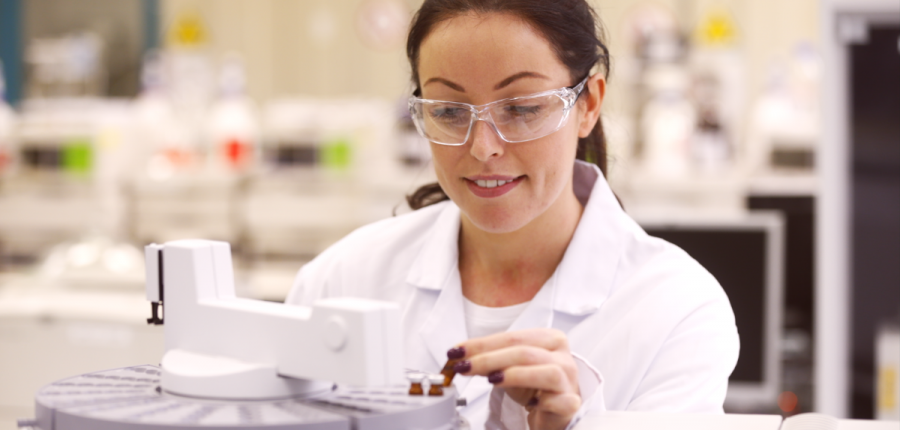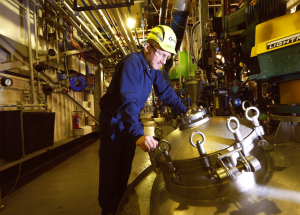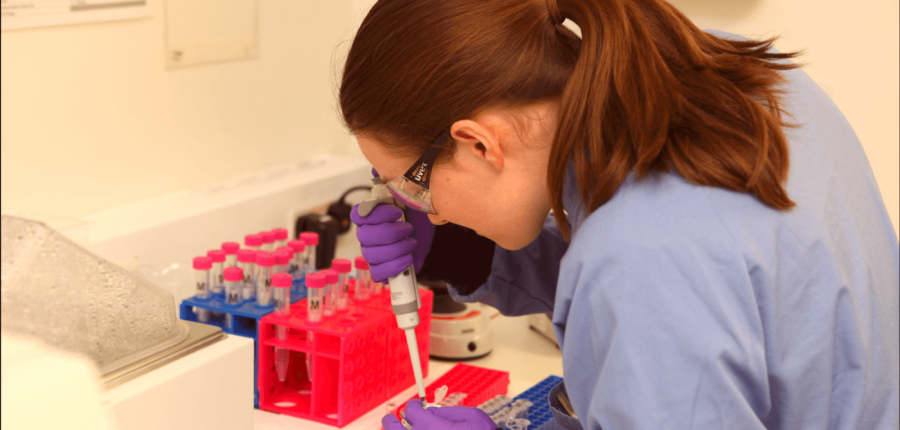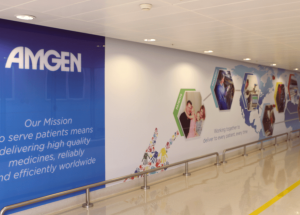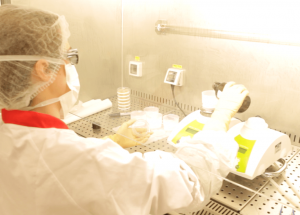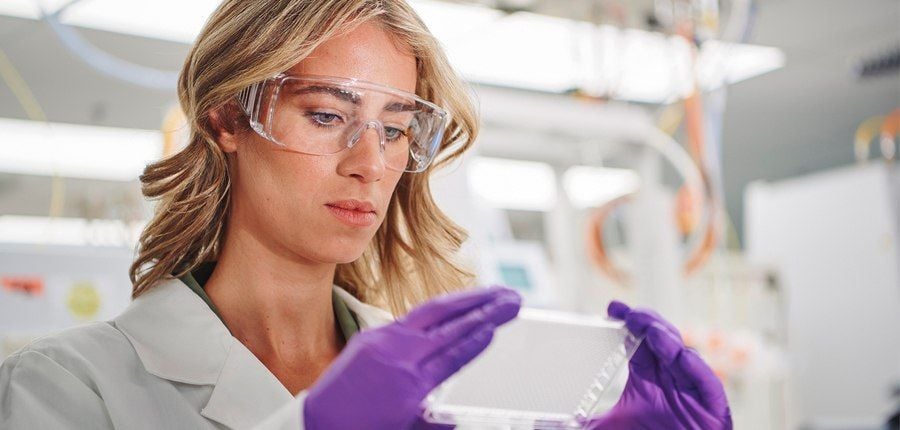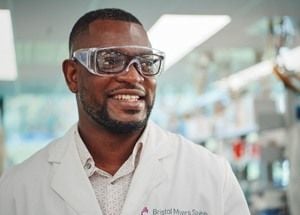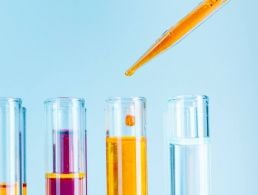Life Sciences Week on Siliconrepublic.com kicks off with a breakdown of the top players in the industry that have made a home for themselves in Ireland.
Roughly 20 years ago, Ireland had about 50 biopharma companies dotted throughout the country. Recent numbers put that figure at more than 300 companies.
New life sciences players are regularly moving in while those that have been here long-term have set down roots for future growth. It’s no surprise, then, that we see regular announcements on Siliconrepublic.com showing that biotech and pharma companies are one of the most active in recruitment.
Out of the world’s 25 largest (by market capitalisation) independent, public biotech and pharma companies, only one – Celgene – has decided to forgo an office on these shores. Celgene UK and Ireland was established as an affiliate office in London in 2006.
And so we are left with the two dozen others, profiled below, starting with the largest first.
Johnson & Johnson
Familiar to millions as a household brand, Johnson & Johnson is the largest biotech in the world, employing more than 125,000 people across 60 countries. The Johnson & Johnson family of companies has been operating in Ireland for 80 years, with almost 3,000 employees across a network of locations including Johnson & Johnson Vision Care in Limerick, DePuy Synthes in Co Cork, and multiple Janssen operations in Cork and Dublin.
Roche
Headquartered in Basel, Switzerland, Roche started out as a provider of vitamins and was the first company in the world to mass-produce synthetic vitamin C. These days, it is a multinational pharma and diagnostics healthcare powerhouse with a commercial operation in Citywest, Dublin and a manufacturing site in Clarecastle, Co Clare. The latter is a manufacturing centre of excellence for the production of active pharmaceutical ingredients, which are used to develop medicines at other Roche facilities around the world.
Pfizer
Pfizer has seven locations across four counties in Ireland, employing more than 3,300 people in all. Pfizer was one of the first pharmaceutical companies to locate in Ireland when it set up in 1969, and the work carried out here includes R&D, manufacturing, shared services, treasury and commercial operations. The company has invested more than $7bn in its Irish operations in its almost 50 years here, including a $30m lab in Ringaskiddy, Co Cork that opened in 2014.
Novartis
Even before Pfizer, there was Novartis, which arrived in Ireland in the 1950s. Also headquartered in Basel, Novartis employs about 1,500 people in Ireland. The Dublin team provides scientific and commercial services, IT, HR operations and procurement. In Cork, two Ringaskiddy manufacturing sites produce active pharmaceutical ingredients for a range of oncology, respiratory, cardiovascular, dermatology, central nervous system and transplantation medicines. The multinational’s Irish footprint also includes Alcon’s facility in Cork, as Novartis acquired the eye care company in 2012.
MSD
MSD (Merck Sharp & Dohme) also has a long legacy in Ireland that stretches back over the last 50 years and, in that time, the company has invested more than $2.5bn in expanding and developing its facilities here. Over the half-century, MSD has developed treatment methods in the areas of diabetes, heart disease, immunology, oncology, infectious diseases, women’s health and anaesthesia. MSD’s Irish sites – in Dublin, Carlow, Cork and Tipperary – are involved in the production of more than 60pc of the company’s global top 20 products.
Amgen
US biopharma Amgen’s Irish activity stems back to its purchase of Pfizer’s Dún Laoghaire facility back in 2010, spending $300m and five years revamping the site in its own image. The development included the construction of a new production plant, a cold-chain warehouse and a full refurb of existing buildings. A new syringe-filling facility positions the Dún Laoghaire plant as a key location within Amgen’s plans, with state-of-the-art manufacturing capabilities bulking up the company’s global operations. Its other office in Ireland is in Santry, Dublin.
Sanofi
Sanofi Waterford was born out of Sanofi-Aventis SA’s $20.1bn purchase of Genzyme back in 2011, creating a global pharma force. Employing around 600 people in Ireland, its products are focused on rare inherited disorders, kidney disease, orthopaedics, cancer, transplant and immune disease, and diagnostic testing. In 2013, €44m was put into the Waterford campus to increase production of insulin product Lantus.
AbbVie
After Abbott Laboratories separated into two publicly traded companies, AbbVie came into being as a research-based biopharmaceutical manufacturer in 2013. AbbVie is spread across five sites in Ireland, comprising three manufacturing facilities in Sligo and Cork, and two Dublin offices performing commercial and operations activities. In January this year, the US multinational announced a partnership with Irish start-up Genomics Medicine Ireland to map the genomes of 45,000 Irish people for use in improved drug development.
GlaxoSmithKline
GSK’s Irish operations are spread across Dublin, Sligo, Waterford and Cork. Active ingredients for nine of GSK’s medicines (including treatments for cancer, depression and Parkinson’s disease) are manufactured in Cork. The Sligo site manufactures 40 different formulations of skin healthcare products, while familiar pharmacy brands Panadol and NiQuitin come from the Waterford site in Dungarvan.
Bayer
Though Bayer has been in Ireland for almost 50 years, it has one of the smaller employee footprints, with around 100 people headquartered in Dublin. The German chemical and pharma giant focuses on healthcare and agriculture, developing new molecules to help improve the health of humans, animals and plants. Last year, the company was named as one of the Best Workplaces by Great Place to Work Ireland.
Eli Lilly
American pharmaceutical business Eli Lilly and Company has had an Irish presence since the 1970s, beginning with the development of a manufacturing facility in Kinsale, Co Cork. Eli Lilly’s medicines are used in the treatment of cancer, diabetes, depression, osteoporosis, schizophrenia, attention deficit hyperactivity disorder, and many other illnesses. Taking into account the firm’s other facilities in Dublin and Cork city (sales and marketing, and global business solutions, respectively), Eli Lilly employs more than 800 people in Ireland.
Gilead Sciences
American biopharmaceutical company Gilead Sciences focuses on the discovery, development and commercialisation of therapeutics and medicines. Gilead’s Ireland operations are responsible for manufacturing, quality control, packaging, and the release and distribution of the company’s products in the European Union and other international locations, such as the countries supported by the Gilead Access Programme. Its most notable products are the hepatitis C drugs, Harvoni and Sovaldi.
Bristol-Myers Squibb
Globally, pharma giant Bristol-Meyers Squibb (BMS) employs more than 27,000 people, including about 550 in Ireland as part of its global manufacturing and supply (GMS) and commercial operations. BMS’s Irish workforce is spread across four facilities, including two pharmaceutical ingredient manufacturing facilities and a drug testing facility in Dublin, and another manufacturing facility in Shannon, Co Clare. It produces medicines that tackle diseases such as cancer, cardiovascular disease, diabetes, hepatitis B, HIV/AIDS, rheumatoid arthritis and psychiatric disorders.
Allergan
Pharma company Allergan directly employs almost 1,700 people in Ireland and, according to economic consultants DKM, this supports a further 600 jobs in the supply chain and 500 jobs in the wider economy. Marking 40 years of business in Ireland this year, the company confirmed an additional investment of €42m in its Irish operations in 2017, as well as a €50,000 Innovation Award Programme with Irish colleges. Headquartered in Dublin, Allergan operates two manufacturing facilities in Dublin and Westport, Co Mayo.
AstraZeneca
Anglo–Swedish multinational AstraZeneca is a science-led biopharma business producing medicines for cardiovascular and metabolic diseases, and oncology and respiratory patients. AstraZeneca Pharmaceuticals Ireland is primarily a sales and marketing company based in Dublin city centre. Currently, about 50 people are employed by AstraZeneca in Ireland, spanning sales, marketing, medical and regulatory affairs, IT, finance and administration.
Abbott
Here since 1946, Abbott Laboratories is home to nearly 3,000 employees across 10 sites in Ireland. The Irish operations are focused on delivering locally manufactured healthcare solutions designed specifically for this market – specifically, science-based nutritional products, diagnostic tools and medical devices. Abbott’s vast Irish network takes in Clonmel, Cootehill, Donegal, Longford, Dublin and Sligo, and includes manufacturing as well as commercial and support facilities.
Novo Nordisk
Novo Nordisk has a global workforce of 42,000 employees, almost half of whom are based in the company’s native Denmark. The company’s five key product areas are diabetes care, obesity and weight management, haemophilia management, growth hormone therapy, and hormone replacement therapy. Novo Nordisk maintains an Irish foothold with offices in Dublin and, in January, it made a defiant post-Brexit decision to invest £115m (€134m) in a new research centre in Britain at the University of Oxford.
Biogen
Biogen is an American multinational biotech headquartered in Massachusetts. Biogen develops, manufactures and markets innovative treatments for neurological, neurodegenerative and autoimmune diseases. The company has committed to providing an inclusive workplace and, for two years in a row, has held a 100pc Corporate Equality Index score from the Human Rights Campaign Foundation, which rates US workplaces on LGBTQ equality. Biogen maintains an Irish office at United Drug House, Dublin.
Shire
Earlier this year, Shire Pharmaceuticals officially opened a new city centre Irish HQ, having moved from west Dublin. The global manufacturer of medicines for rare diseases expects to house 300 employees at the 76,000sq ft Miesian Plaza office, including commercial and technical operations (supply chain and IT). Last year, Shire revealed plans for a manufacturing operation in Co Meath, with 400 employees required on the 120-acre site. This operation will employ the latest bioprocessing techniques and flexible production strategies, enabling it to supply both clinical and commercial-scale products.
Stryker
Medtech multinational Stryker Corporation is active in more than 100 countries worldwide. Its presence in Ireland began in 1998 and, over the last 17 years, Stryker has built its research, development and manufacturing operations here through investment and acquisitions. Stryker operates a number of sites in Cork and Limerick, employing engineers, scientists and support staff in research and development.
Regeneron
Regeneron Pharmaceuticals, a New York-headquartered biotech company founded in 1988, opened its first facility outside of the US in Dublin in 2013. Dublin is home to the firm’s EMEA headquarters, and houses Regeneron’s business operations in Europe, from regulatory affairs to pharmacovigilance. When Regeneron arrived in Ireland in 2013, the company also invested €310m in developing a facility in Limerick, this time devoted to manufacturing. This Industrial Operations and Product Supply (IOPS) facility in Raheen launched in 2015 and works to produce medicines for patients around the world.
Teva
Teva Pharmaceuticals is an Israeli multinational pharmaceutical company headquartered in Petah Tikva. In March, Teva announced that it will close a testing laboratory in Dundalk, Co Louth next year amid worldwide cost-cutting. Dundalk is the seat of Teva’s commercial arm in Ireland, managing the sales and support services for Teva’s large portfolio of products for cardiovascular, central nervous system and respiratory health, as well as pain relief and infection control. A manufacturing division in Waterford is responsible for the manufacture and development of respiratory products for supply to the US and other global markets, while a smaller facility in Dublin produces Sudocrem nappy rash cream.
Baxter
For more than 50 years, Baxter International has had a presence and long-standing commitment in Ireland. One of the largest suppliers to hospitals and home patients, Baxter has 50,000 employees worldwide, serving patients and clinicians in more than 100 countries. Baxter has offices in Dublin and Belfast as well as manufacturing sites in Dublin and Mayo. The company primarily focuses on products to treat haemophilia, kidney disease, immune disorders and other chronic and acute medical conditions.
Alexion
Alexion Pharmaceuticals is a relative newcomer to the Irish biopharma scene, having opened its first Irish facility in Dublin in 2013, establishing its global supply chain and quality operations with 60 employees. Now, the company employs around 300 staff across its three facilities, and has announced several phases of local expansion. First, the acquisition of a site in Athlone, Co Westmeath, which now houses an aseptic vial fill-finish facility; followed by the acquisition of a 41-acre site at College Park in Blanchardstown. The latter now serves as the company’s new global supply chain and operations headquarters, with laboratory, office, packaging and warehouse facilities in one location. Blanchardstown will also be home to a new 20,000sq m bulk biologics manufacturing facility that is currently under development, and the Athlone facility is also being expanded to house another biologics manufacturing facility on-site.
Want stories like this and more direct to your inbox? Sign up for Tech Trends, Silicon Republic’s weekly digest of need-to-know tech news.

